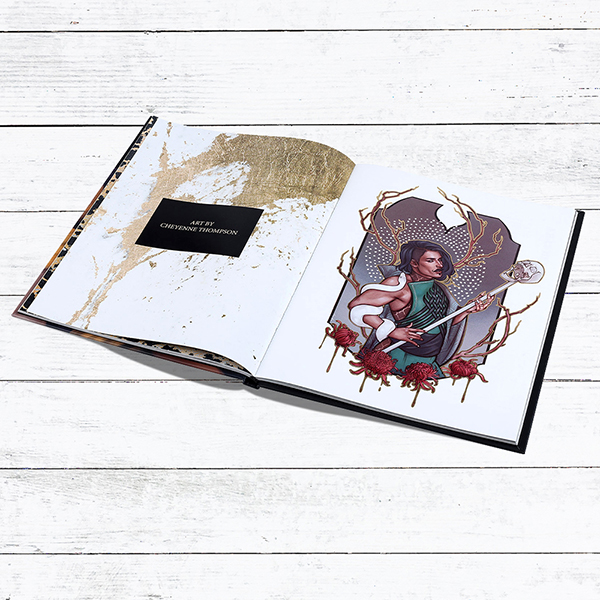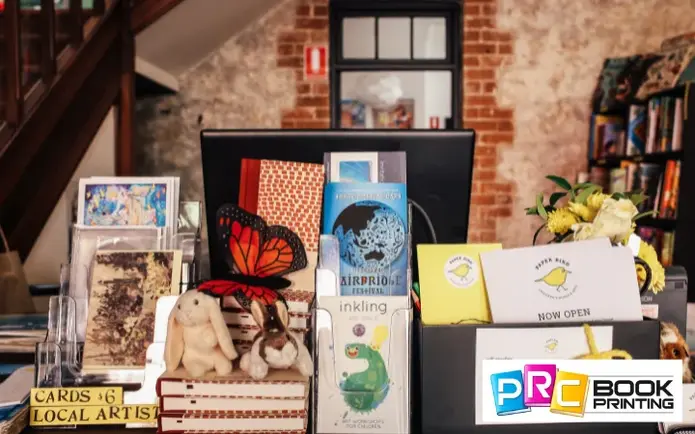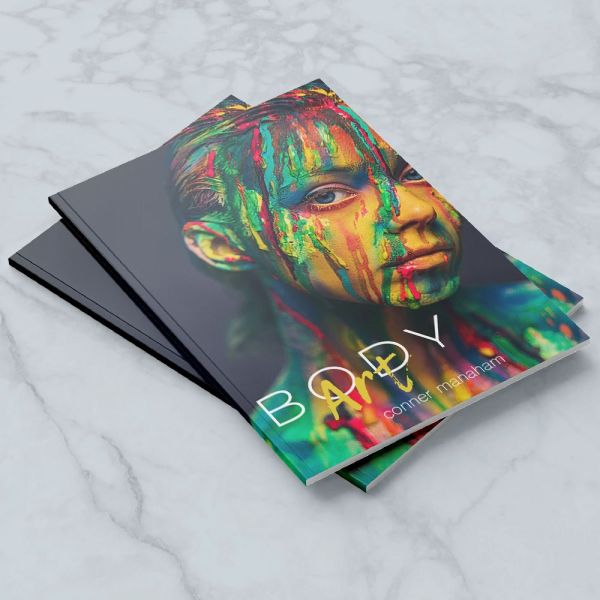Importance of Typography in Your art book Design
Importance of Typography in Your art book Design
Blog Article
Comprehending the Refine Behind High-Quality Art Book Printing for Art Fanatics
When it comes to high-grade art book printing, recognizing the complexities of the procedure can elevate your gratitude for the last item. You might not realize just how vital paper option and ink choices are to the vibrancy of artwork. Each element plays a substantial duty in attaining the desired effect. As you explore the different parts of art book printing, you'll uncover understandings that might change your perspective on art conservation and discussion.
The Importance of Paper Selection in Art Book Printing
When it pertains to art book printing, the choice of paper can make or break the end product. You want your art work to beam, and the ideal paper improves shade vibrancy and information. Think about aspects like weight, appearance, and coating; these components considerably influence just how readers perceive your work.
For instance, a larger supply conveys high quality and durability, while a textured coating can include depth to pictures. Smooth paper is superb for thorough reproductions, allowing fine lines and refined tones to show up crisp.
Do not forget the paper's illumination; a brighter sheet can help shades pop, making your art much more appealing. You'll additionally intend to think regarding how the paper interacts with inks and whether it can take care of the printing process without buckling or bleed-through. Ultimately, picking the right paper sets the phase for your art, ensuring it catches the target market's focus equally as you envisioned.
Choosing the Right Inks for Dynamic Recreations
Picking the appropriate inks is simply as vital as choosing high quality paper to achieve vibrant recreations in your art book. When you're publishing art work, you desire shades that stand out and accurately represent the initial piece. Choose inks with a high pigment focus; these often tend to create richer and extra saturated colors.
You may take into consideration utilizing historical inks, which stand up to fading over time, guaranteeing your art book remains as striking as the day it was printed. If you're functioning with photographs or electronically created art, pigment-based inks can give a broader color range, improving detail and deepness.
Do not fail to remember regarding the surface! Matte and shiny inks can considerably modify the appearance of your art work, so consider the appearance you're intending to attain - art book. Eventually, the best ink choice matches your paper choice, producing a spectacular aesthetic experience for your viewers
The Role of Color Monitoring in Print Quality
Shade monitoring plays a crucial duty in attaining high print high quality for your art book. It guarantees that the shades you see on your display equate properly to the published page. Without efficient color management, your vibrant artworks may appear boring or altered, weakening your creative vision.
To start, calibrate your monitor routinely. This step aids keep consistent color representation. Next, use shade accounts customized for your printer and paper type. These accounts guide the printer in replicating colors precisely, decreasing discrepancies in between electronic and printed versions.
When you prepare your data, take into consideration using a shade space like Adobe RGB or CMYK, depending on your printer's specs. Constantly evidence your work, as well; an examination print can expose any kind of possible shade problems before the last run. By focusing on shade administration, you secure the honesty of your art, guaranteeing your audience experiences it as you intended.

Comprehending Various Binding Techniques
Attaining the excellent search for your art book goes past color administration; binding strategies also play a substantial function in its total discussion and resilience. You have a number of choices to evaluate, each with its own one-of-a-kind attributes.
If you're going for a professional feel, situation binding offers a durable option with a tough cover, best for showcasing your artwork. click here On the various other hand, best binding offers a flexible back while keeping costs down, making it a preferred selection for softcover publications.
Spiral binding permits your art book to lay flat, which is terrific for displaying images without obstruction. Saddle stitching is perfect for smaller pamphlets, giving a tidy coating without the bulk.
Inevitably, the binding technique you pick must mirror your creative vision and just how you want viewers to engage with your work. Ensure to consider these choices carefully to attain the ideal result for your project.
The Effect of Print Size and Design on Discussion
While the selection of print size and format might seem additional to web content, they substantially influence click here just how your art work is viewed. The measurements of your prints can either boost or reduce the impact of your items. Larger prints can attract viewers in, allowing them to value intricate details, while smaller styles might call for even more intimate interaction.

Preservation Techniques for Lasting Art Books
To ensure your art publications stand the test of time, it's important to carry out effective conservation methods. Use acid-free storage boxes or safety sleeves to shield them from dirt and physical damage.
When managing your books, constantly clean your hands or wear cotton gloves to prevent oils and dust transferring onto the pages. Avoid flexing or creasing the spinal columns; rather, use book sustains when displaying them.
For added security, consider spending in archival-quality products for any kind of fixings or enhancements. Routinely examine your collection for indications of wear or damage, attending to issues promptly. By adhering to these easy techniques, you can assure your art books remain vibrant and easily accessible for many years to come, preserving their elegance and worth for future generations.
Teaming up With Printers for Optimum Outcomes
When you prepare to publish your art book, picking the ideal printer is important to achieving your vision. Clear communication concerning your expectations and needs will assist assure that both you and the printer are on the same page. Allow's check out exactly how to make this partnership as seamless and efficient as possible.
Picking the Right Printer

Effective Communication Methods
Effective communication is essential for transforming your art book vision right into fact, especially when teaming up with printers. art book. Begin by plainly describing your job's goals, consisting of style aspects, preferred materials, and any kind of specific printing methods. Do not hesitate to share your inspirations and references; this assists the printer understand your aesthetic
Be open to feedback, as printers frequently have useful insights that can improve your job. This collaboration will certainly ensure that your art book satisfies your expectations and beams in its last form.
Often Asked Inquiries
What Prevail Mistakes to Avoid in Art Book Printing?
When publishing your art book, stay clear of typical errors like bad resolution images, wrong color profiles, and disregarding page layout. Don't forget to check and confirm details to verify your end product meets your assumptions.
How Does Digital Printing Differ From Typical Printing Methods?
Digital printing makes use of digital documents to produce prints straight, enabling quicker turnaround and customization. On the other hand, traditional techniques entail physical plates, which can be lengthy and much less flexible for small runs or unique styles.
What Is the Common Turnaround Time for Art Book Printing?
The regular turn-around time for art book printing differs, yet you can expect it to take anywhere from a couple of weeks to numerous months. Elements like intricacy, amount, and printing method all influence this timeline.
Can I Publish a Limited Version Art Book Financially?
You can publish a restricted edition art book financially by picking economical materials, maximizing print runs, and utilizing electronic printing options. Cautious planning and budgeting will certainly aid you attain top quality without overspending.
What Are the Ecological Factors To Consider in Art Book Printing?
When taking into consideration art book printing, you ought to think of green products, sustainable inks, and energy-efficient processes (art book). Selecting local printers can likewise lower your carbon footprint, making your job both lovely and eco liable
Report this page